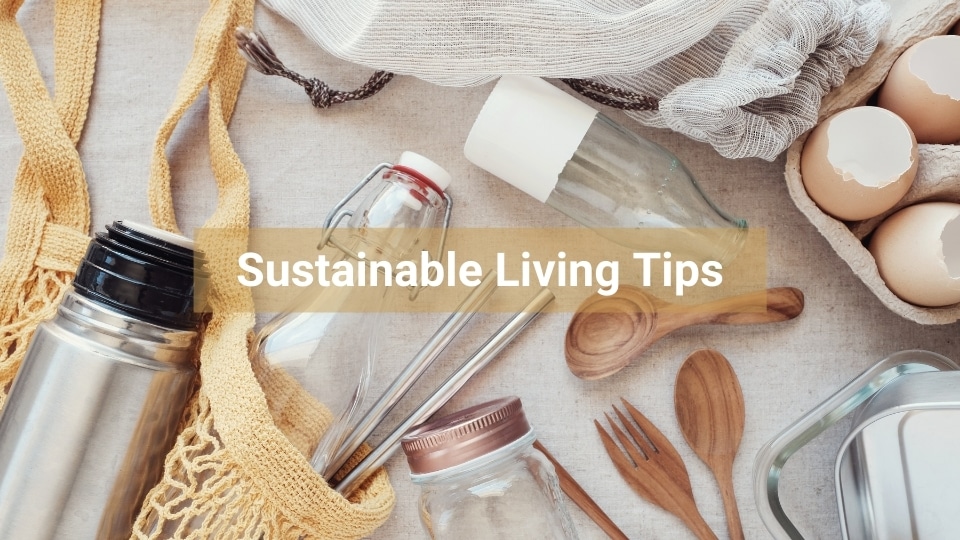Sustainable living plays a huge role in our well-being and maintaining a healthy lifestyle.
When we ask the question “Does this hurt or help the environment?” can inspire us to start taking action to live more sustainably.
Supporting our environment and the longevity of natural resources is the foundation of sustainable living. In all areas of our life, consider how we can reduce waste, conserve energy, eliminate toxins from our environment and become a more conscious consumer.
Living a more eco-friendly life is a journey. It doesn’t happen overnight; It takes patience, education, mindfulness, and compassion for all life.
Here are some simple steps you can take this month to help you begin the journey to sustainable living.
1. Reuse and Reduce Waste
-
-
- Use reusable containers for food storage.
- Bring reusable bags when you shop.
- In your car keep a on-the-go kit on hand with a reusable utensil kit, a refillable water bottle, and cloth napkins to use when you are out. Wash them and pack them back up for next time.
- Purchase goods with minimal packaging.
- Say no to straws.
- Use reusable paper towels.
- Reduce plastics in your home.
- Compost food scraps.
- Recycle.
-
2. Go Chemical-Free
-
-
- Replace toxic cleaning products with natural eco-friendly ones.
- Use only natural body and skin care products. Be aware of the ingredients in makeup, deodorants, hair products, and body care products that are harmful to your health.
- Swap out all your soaps and detergents for natural ones!
- Make your own DIY natural cleaners in reusable bottles. Click here for a guide to non-toxic home cleaning solutions.
-
3. Be a conscious consumer
-
-
- Shop quality goods that will last longer. This will save you money in the long haul and reduce waste.
- Go to farmers markets.
- Go meatless a few days a week.
- Choose organic whenever possible.
- Buy sustainably made products.
- Know where your food comes from.
- Choose experiences over materialism.
- Practice minimalism and environmental mindfulness.
-
4. Save Energy
-
-
- Replace old light bulbs in your home with energy-saving ones. They also tend to last way longer which ends up saving you more money in the long run.
- Be aware of the thermostat temperature. Take advantage of cooler times of the day to cool down your house by opening up windows and conserving power.
- Inspect your home and repair leaks, old windows, and use quality insulation.
- Use the right curtains.
- Unplug electronics and appliances that are not being utilized.
-
5. Resource Efficiency
-
-
- Take only what you need.
- Take stock of what you have on hand and use it. We often have dried goods or products that collect over time that we forget about in the back of the pantry and cupboards.
- Upcycle as much as possible.
- Donate used clothing and household goods.
- Go paperless with your monthly bills and subscriptions
- Buy in bulk the things you frequently use to save and reduce packaging waste.
-
Making a sustainable change and impact starts with small daily actions. Practice taking only what you need and asking the question “ Does this hurt or help my health and the environment?”
Sustainable living is the foundation of a healthy life and encompasses the choices we make internally for the health of our bodies, and externally, by learning to live in harmony with nature and be a conscious consumer.




